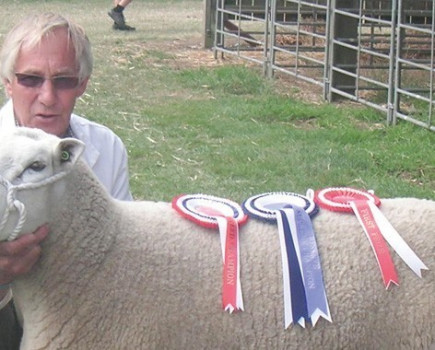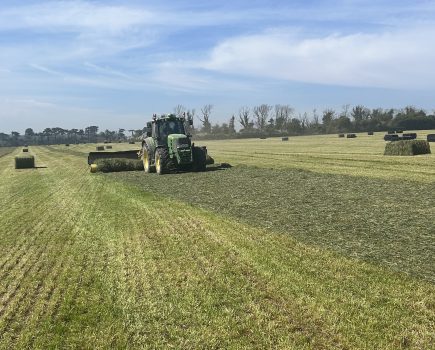After 14 years this will be my last article in South East Farmer.
I am sorry that I don’t have a more inspiring market to report on. Apart from China unusually buying a million tonnes of wheat from the USA, the rest is moribund or becalmed.
Unfortunately, the usual suspects are all living up to their billing. Despite the war, Russia and the Ukraine continue to dump their surplus wheat and barley crops on the world market at below EU values. Really only the usual freezing up of the ports or further direct military action is likely to restrict exports, but, even when vessels have been struck with missiles or mines, the exports still seem to get through.
Goodness knows what the marine insurance rates really are, but sea freight is still increasing, and as the southern hemisphere harvest becomes available there are countries much closer to China and the Pacific countries that will capture more of the export trade from the Black Sea. You must wonder how much lower the international export price for feed wheat and barley would have been if the Ukraine had no restrictions on exports or, indeed, production. The wartime market peaks of May 2022 seem a long time ago, but it’s worth recalling that in the case of May 2024 UK wheat futures, when the war began in Feb 2022 it stood at £204.50 and since then it had a contract high of £284.50 and a contract low of £190.70.
Today’s future price is £194, so from that you can deduce that the market has more on the upside than the downside. That is dependent upon the UK having no more than a 14 million tonne wheat crop from the 2023 harvest and also to some extent our ethanol factories continuing to use home grown wheat rather than imported maize.
UK wheat exports are negligible anyway, but if the Black Sea supply dries up we still have potential for sales from our southern and west coast to Spain in the new year. Our feed barley looks cheap, so it’s no wonder livestock producers in the south west and north west are using as much of it as they can.
My pet subject, malting barley, remains enigmatic. Europe has had the poorest harvest in terms of yield and quality for some time. The offtake of barley and malt has been very slow, with falling beer sales being blamed, and yet for the months where maltsters have to buy, February to June 2024, the malting premiums over feed are still at near record highs.
European maltsters are nervously looking at Argentina, where the start of their malting barley harvest has been delayed by rain. There is still a considerable game to be played out with malting barley. With germinations deteriorating in Europe and the UK, will all the barley still be fit for purpose when the maltsters decide to buy in the new year? With no hope of a carryover from this year to 2024 crop, will there be enough physical malting barley still left for April, May, June? Even if there were to be a 13% increase in spring barley plantings, which I doubt, that won’t make any more physical malting barley available for use before harvest.
Speaking of the usual suspects, the USDA continues to perform its trick of coming out before the battle is over to bayonet the wounded. As soon as there is any lift in the market, the USDA miraculously finds some extra stock, usually carried in from the previous year, or exports are reduced. I have a feeling this is why the short selling hedge funds have proliferated, because whatever the market is doing the USDA will put a negative spin on it. Over the past two years, despite certain peaks to the contrary, the hedge funds have made a lot of money by short selling futures.
As you may recall, I stopped giving advice about oilseed rape because only consenting adults should be allowed to trade it. Throughout my very long career I have always worked upon getting three out of five market decisions right, and I believe I have, as more than that and you would be lying. I do hope that some of you also will have benefitted from this in your marketing decisions.
I would like to thank all of the readers who have gone out of their way to introduce themselves to me at meetings and shows. Quite a number I have never traded with, but they have appreciated my impartial commentary. I leave Openfield at the end of December, but will continue as a director of CMG, Crop Marketing (Groups) Ltd.
I leave you with a quote from the wartime 1939 broadcast by King George VI: And I said to the man who stood at the gate of the New Year “give me a light that I may tread safely into the unknown”. And he replied “go out into the darkness and put your hand into the hand of God. That shall be to you better light, and safer than a known way” so I went forth, and finding the hand of God, trod gladly into the night.
Wishing all my readers a healthy prosperous New Year.
Editor’s note: Elved’s column has been a mainstay of the magazine for so long that it is hard to imagine South East Farmer without it. We wish him all the very best for the future.







